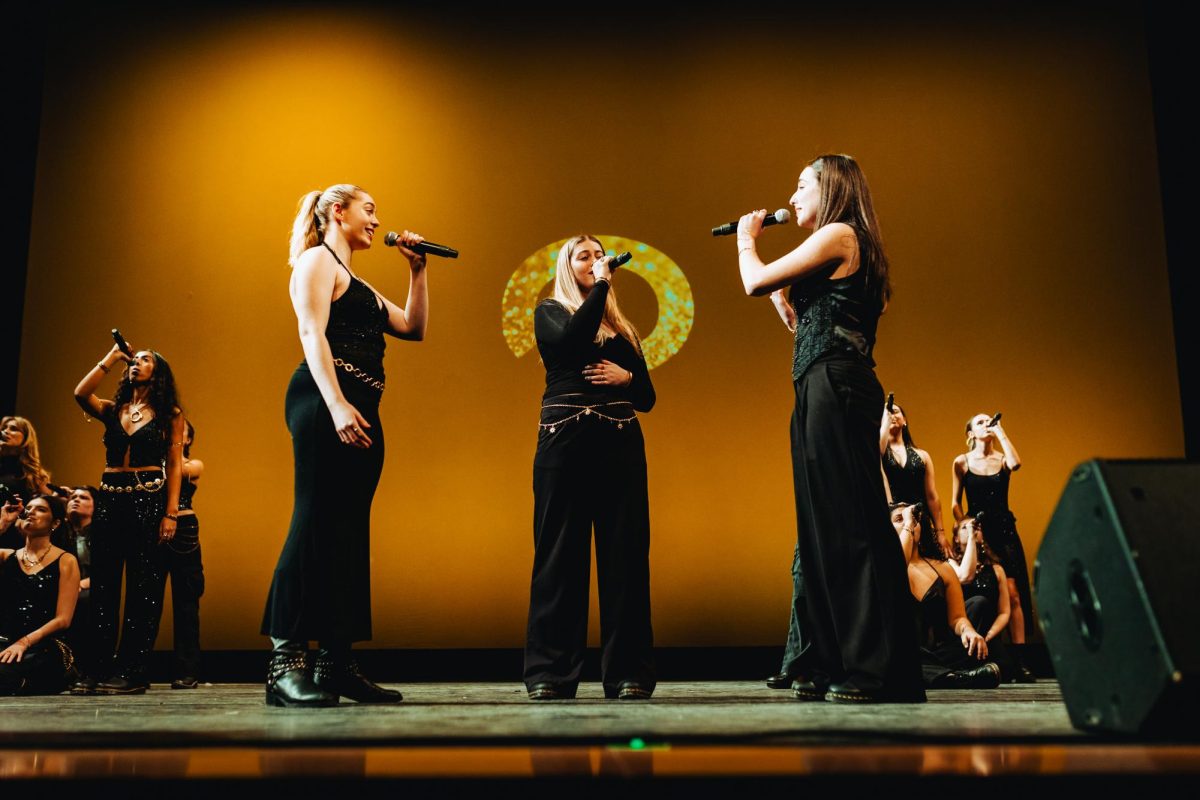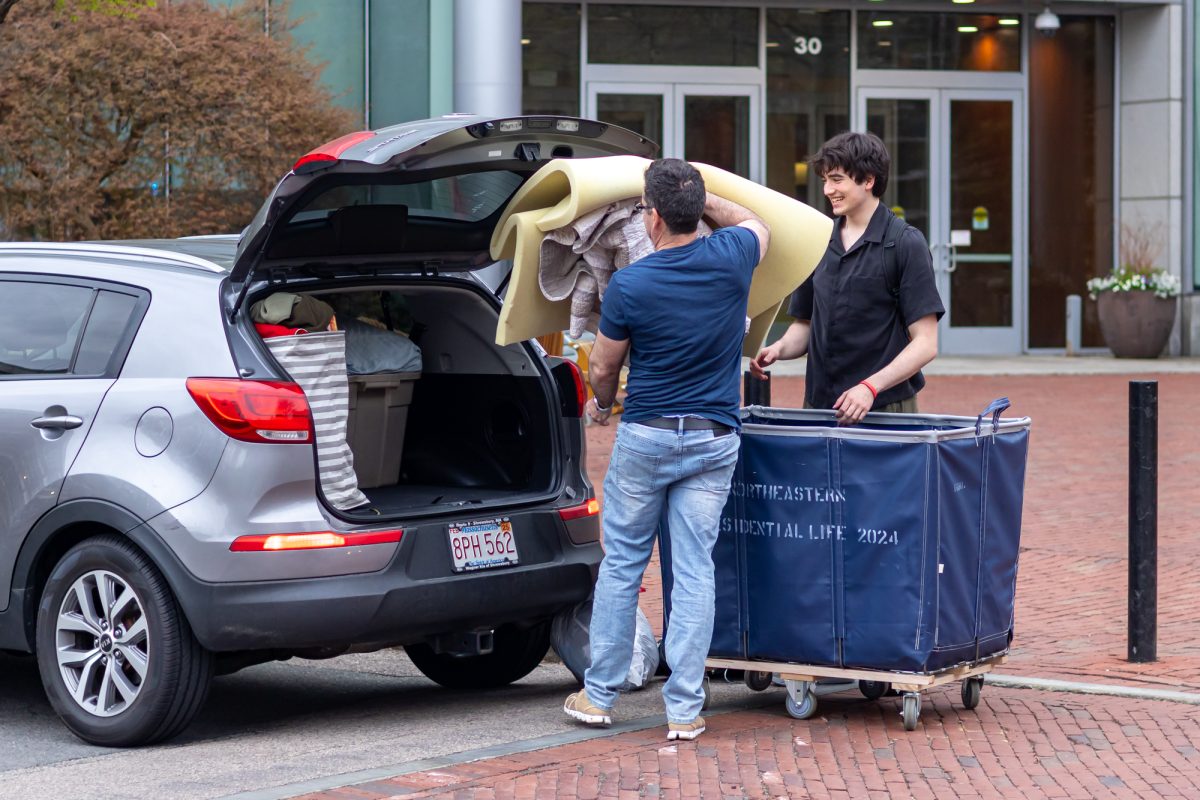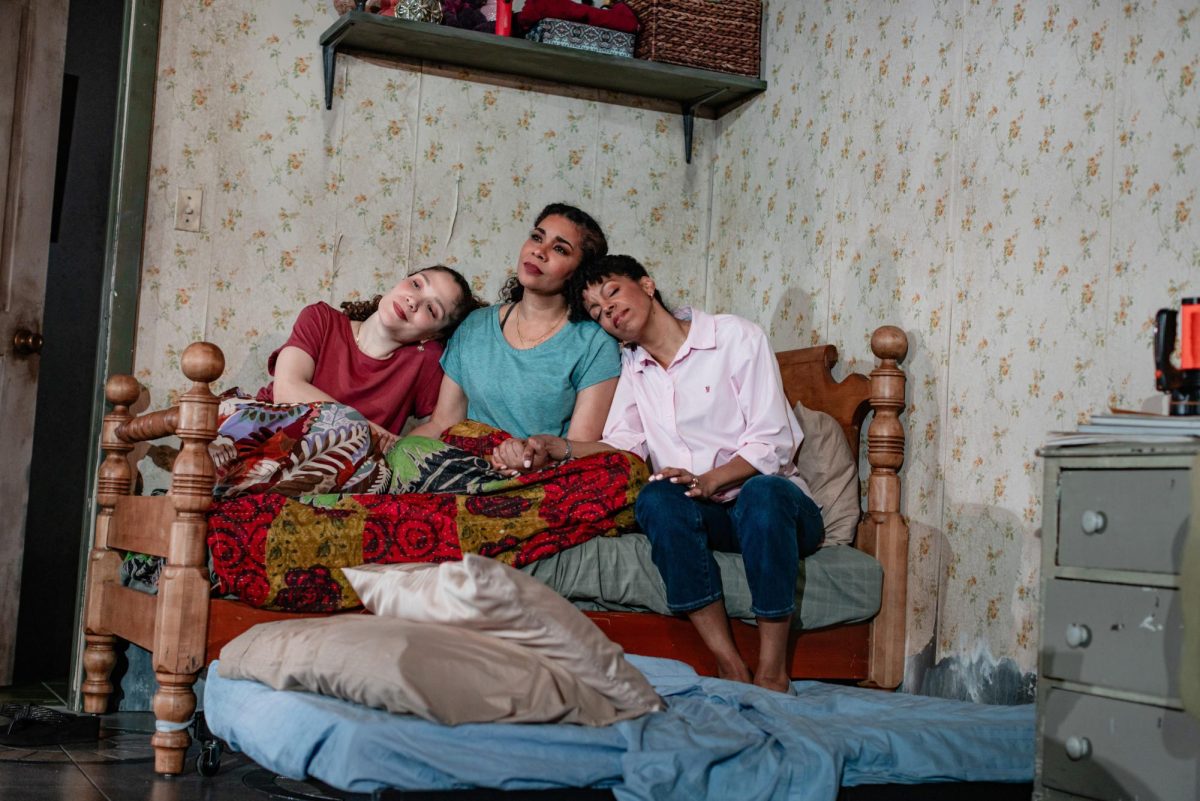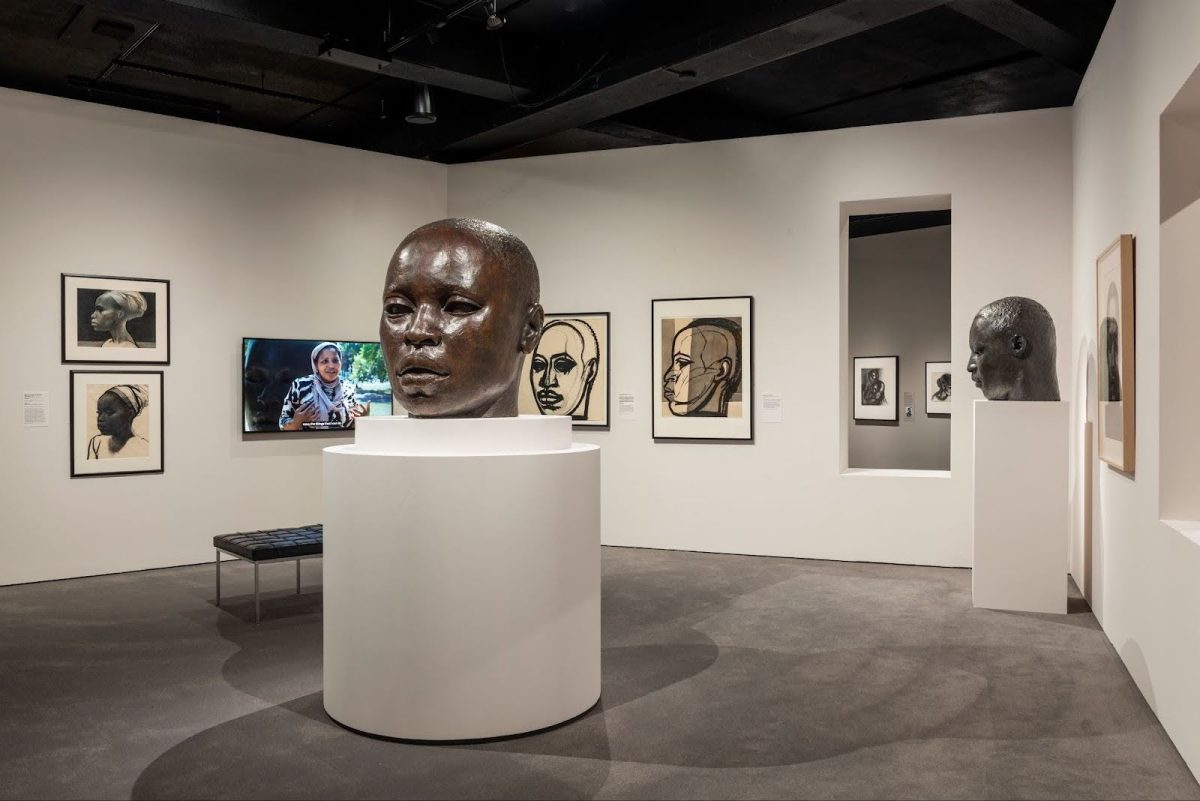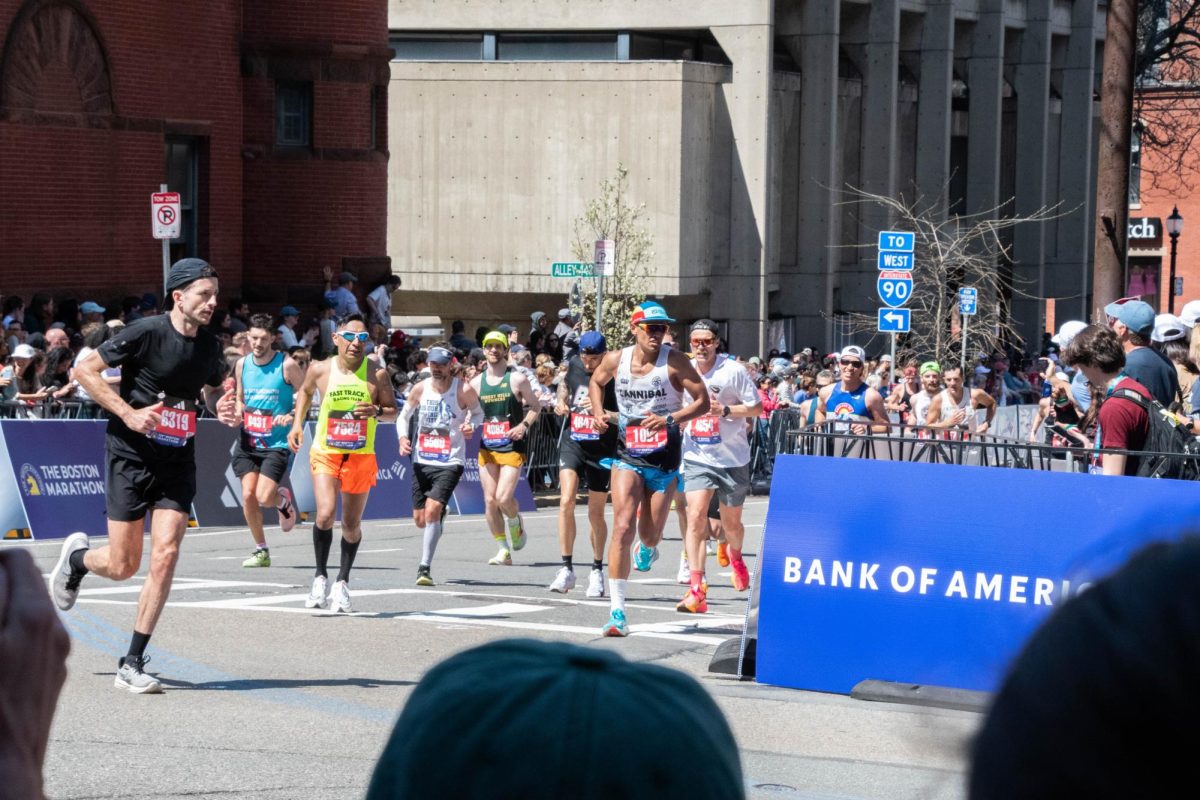By Jessica Melanson, News Correspondent
A train rolls into the T station. There’s an artificial gust of wind, a loud creak of wheels against worn rails, people crowding at the edge of the yellow line.
At the base of the escalators, a man sits with a guitar, one foot propped up on a foot stand for proper posture, hands plucking at strings to create the lilt of classical guitar music. Scattered dollar bills and coins line the bottom of an opened guitar case. A milk crate covered with green fabric displays two compact discs for sale.
His name is Dan Lawrence, and he’s been playing guitar underground for 10 years. His life is not the five minutes of pleasant music you hear while waiting for the next Red Line train to Alewife. His life is getting up at 4:30 every morning, packing his guitar and amp on a dolly, and catching the day’s first train from Jamaica Plain to South Station, his favorite haunt on Fridays.
“It gets in your blood, doing this. … Not a lot of guys can make a living at it,” he said.
Lawrence has been in and out of jobs, but his main job is that of a subway musician. He said he loves playing for people.
One man approaches Lawrence and requests a specific classical guitar song. The man listens for fifteen minutes, ignoring the trains that come and leave. When Lawrence plays, he moves his head and shoulders back and forth to match his tempo. He doesn’t look around the station or at his audience. He keeps his eyes on his guitar. He smiles.
Lawrence said people requesting classical songs, although rare, is his favorite part of the job.
“People get excited by your music,” Lawrence said. “He knew those songs. He was great … an appreciative audience.”
Lawrence said he has played at almost every underground stop on the T. He said his favorite places to play are South Station on Fridays, Government Center on Saturdays and Porter Station Wednesday nights.
Last Friday at South Station, he was playing in a designated performance area marked with a fading Massachusetts Bay Transit Authority (MBTA) sign. According to the MBTA website, musicians must have permits to play in the subway. The MBTA website also said applicants must pay $25, show two forms of photo identification for proof of citizenship or visa or green card, and give a mail envelope received within the last month to prove residency. In addition, applicants must provide references and explain their past experience as musicians.
Despite regulation of performers, competition for performance areas is high, which can be a challenge for someone paying the bills only by playing in subways. On days he can’t find a spot, Lawrence said he just goes back home and tries again the next day. He said the commitment is “like a regular 40-hour-a-week gig,” even though his best working days are on the weekends.
“When you have a good day, you have to work it like a rented mule,” said Lawrence. “If you play five days but have three mediocre days, chances are two good days will help make up for those three mediocre days. It pays to be motivated.”
Lawrence said he makes about $100 a day on average. Some days he has made only $20, he said, and other days he has made up to $200. He said he usually plays until 3 p.m., about eight to 10 hours a day – all from memory. He can play three hours without repeating a song, he said.
Lawrence said he has been playing guitar for 30 years since he picked it up at age 16. He said he chose to play guitar because his best friend’s brother, Rob, played guitar.
“I idolized him [and his band mates],” said Lawrence. “They were real badass, cool people.”
Lawrence can also play mandolin, bass, harmonica, piano, some percussion and dobro, a kind of steel country music instrument similar to a slide guitar. Lawrence said he likes playing bass and classical guitar. He has been playing classical guitar for five years and especially likes Bach compositions, but appreciates all songs.
“A piece is like a person,” he said. “They’re all different. It’s like getting a different friend [each time]. …They all have their own quirks.”
Lawrence left his native New York in 1984 to attend Berklee College of Music. He graduated in 1988, and played in many bands during the 1990s. He said he loved it even though he struggled financially.
“It’s a trade-off. I downsized a lot,” Lawrence said. “I moved out of my apartment [to a smaller one] and got rid of my car. … I wasn’t rich, but I was happy.”
Lawrence left the band scene 10 years ago. He said he didn’t enjoy recording, because there was a lot of pressure to get things exactly right. He had wanted to keep playing music, he said, but he needed money to live on, so started playing in subways.
“I realized I hated working in studios … they’re too much like a laboratory,” Lawrence said. “I was tired of working clerk jobs and retail jobs. Go into music and do or die.”
Lawrence has worked as a teacher and a composer. He has recorded three CDs. Currently he’s composing a long-form piece for piano.
Lawrence said he has recently come to another transition in his life. He started at Northeastern’s Institute for Emergency Medical Services, a division of the College of Professional Studies, on Tuesday.
“Nine-one-one [September 11, 2001] is the dividing line in my life,” he said.
New York is his home, he said, and he had firefighter friends who died on Sept. 11, 2001.
“I almost became an EMT right then, [but] I was really into music,” Lawrence said. “I wasn’t ready to give it up.”
He said he is excited to start the 12-week Emergency Medical Technician (EMT) training program now. Lawrence said he will continue playing in subways while he is in school. Once he has his EMT certification, he said he will keep playing music, probably in a band, he said.
“[Playing in a band] should be about fun … Most bands take themselves too seriously,” he said. “It’s a different thing when you’re paying the bills with it. You get sick of it. The thing you love the most, you don’t want to spoil it.”


